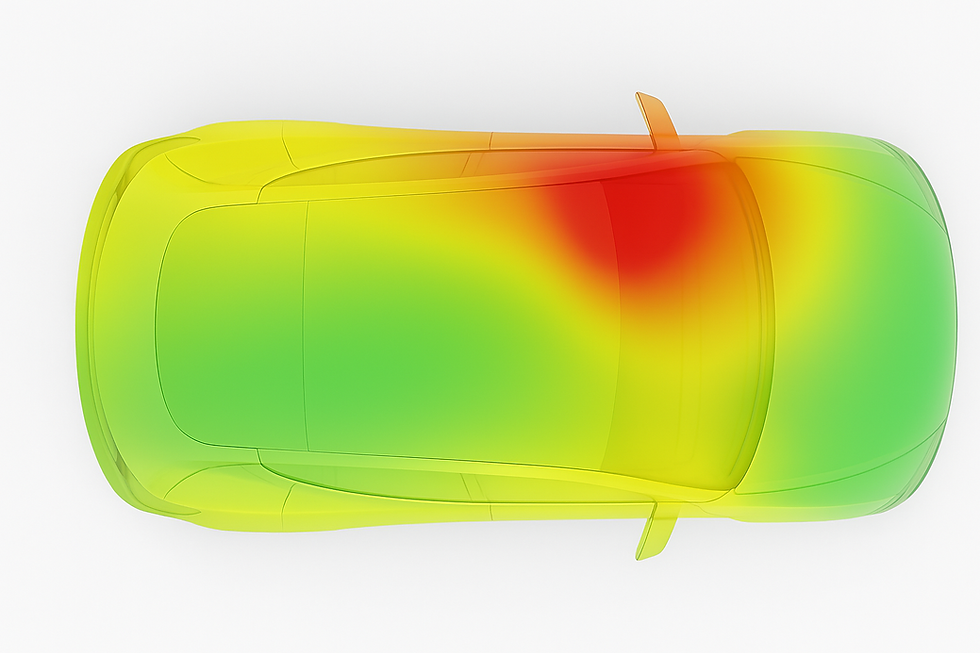EV Battery Drain: The Silent Warranty Killer
- oren8459
- Jul 21, 2025
- 2 min read
Updated: Jul 28, 2025

The Hidden Cost of “Parked” Power Loss
It starts like this:
A customer returns to their EV in the morning only to find that 15–20% of the battery has drained overnight. The car was supposedly off. No climate control, no charging, no apparent activity.
It happens once. Then twice. Then the customer takes it to a service center—where diagnostics come up clean. Telematics logs show nothing out of the ordinary. Battery Management System (BMS) reports look normal.
And yet the drain persists.
This is not a rare issue. It’s a growing class of field failures affecting EV fleets globally—parasitic battery drain during parked or idle states. While it often goes undiagnosed or underreported, the impact is real:
Escalated warranty claims
Repeated part replacements “just in case”
Frustrated engineering teams unable to reproduce the problem
Brand damage from unresolved user complaints
Why Today’s Tools Can’t See the Problem
The root cause? An invisible energy leak.
In modern EVs, software-defined components—from telematics modules to over-the-air (OTA) gateways—can trigger wake events or low-power draw that’s too small or sporadic to register with traditional tooling. Common diagnostic tools rely on:
Telematics snapshots, which miss short-duration events
BMS aggregates, which show the effect but not the source
CAN logs, which require complex integration and often don’t capture the moment of failure
Even deep-dive service investigations typically require invasive testing or hours of trial and error. OEMs are left with a blind spot—and customers, with a ticking battery.
Introducing a New Lens: Energy Intelligence from EMF Sensing
V-Hola has developed a fundamentally different approach. Instead of trying to reconstruct behavior from software logs or system data, we listen to the vehicle’s electromagnetic emissions.
Our non-intrusive sensor kits clamp externally to detect full-spectrum EMF activity across the vehicle. This allows us to observe exactly when and where energy is being consumed—down to specific ECUs or subsystems—even when the vehicle is in a low-power state.
Paired with AI models trained on thousands of hours of vehicle EMF signatures, the system can:
Identify and timestamp transient energy spikes
Correlate those to physical zones and likely root causes
Flag anomalous patterns like sleep-wake cycles or sub-threshold leaks
All without connecting to the CAN bus or modifying the vehicle software.
Want to see how energy intelligence can help your fleet sleep better? contact us to learn more.



Electric vehicle owners know that battery testing performance is the heart of their car but what many don’t realize is that unnoticed battery